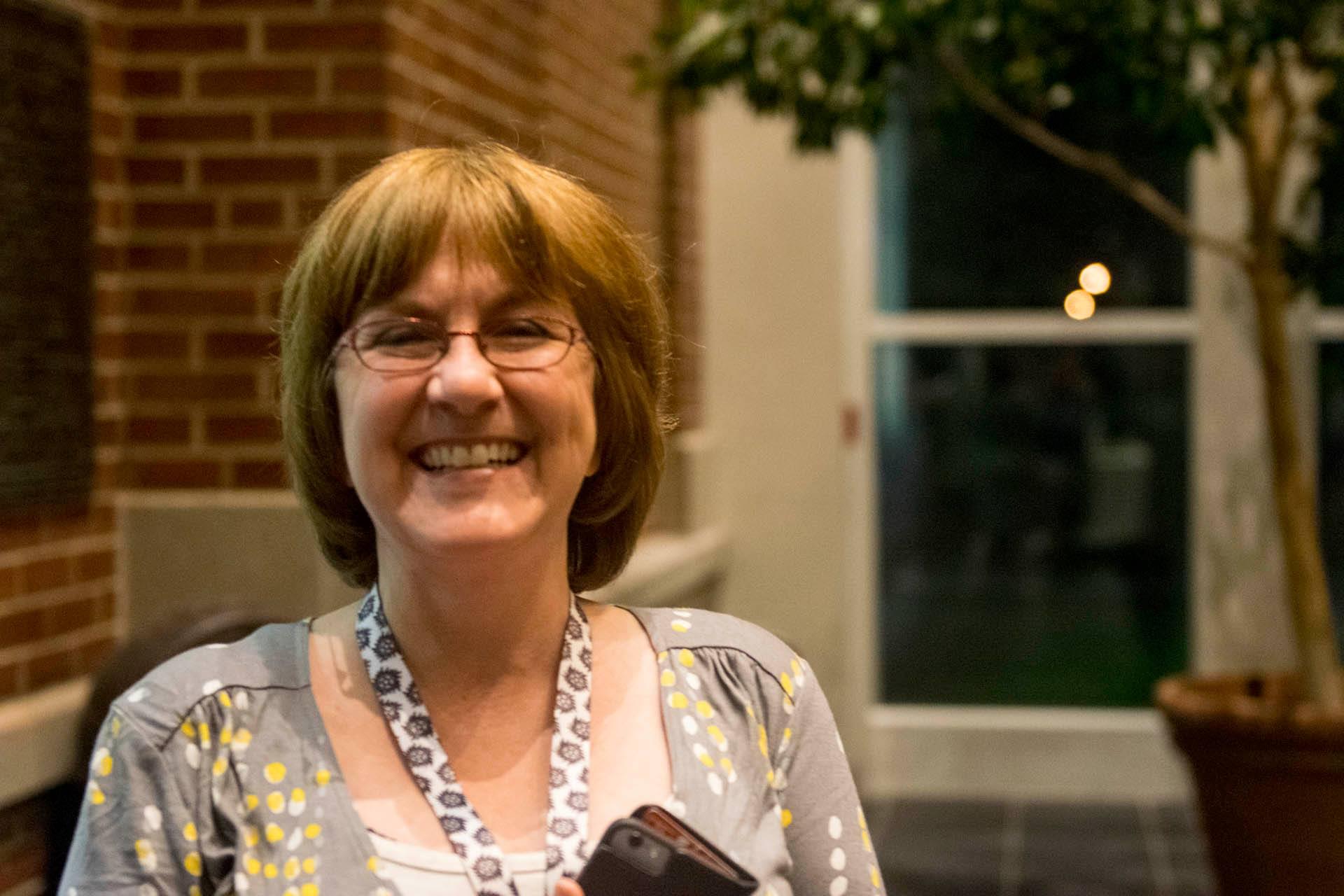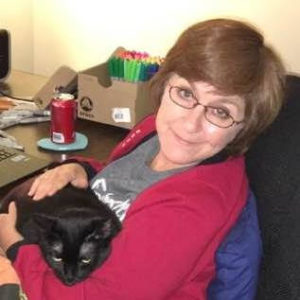
Michelle Davidson graduated from Minot State University with a B.A. in psychology and B.A. in communication with a concentration in theater. She has her MFA in Theater Technology: Costume Design from the University of South Dakota. She teaches costume design, basic costuming, stage makeup and senior seminar at Truman State University.
What got you interested in theater?
I wanted to be an actor — that’s how I got in theater. I thought, “I’m a decent enough actor,” but I’m 4’10” and that means I get to play little old ladies, maids and kooky best friends. It broke my heart. I realized actors have to have guts. Actors go through their entire lives being told something is physically not right with them and that type of rejection was not something I could face the rest of my life. But I love theater and I realized I’ve been drawing fashion and costumes and sewing almost my entire life, so I turned my focus, and I actually like it more than acting. You get a lot of the same in-depth figuring out what the play means, who these people are, without actually putting myself out there. I love working with actors, and I love watching people discover their characters, and I love what my costume can do to help with that.
How did you end up at Truman State University?
Unfortunately, there’s not a lot of money to be made in Minot doing theater and I found there wasn’t anybody there who could teach me more about costuming than I knew already, so I went to grad school in South Dakota. After I got my degree, my first job was at the University of Nevada, Reno, and I worked there for four years. After a death in the family, I decided I couldn’t stay in Reno alone, and a job came open at the University of North Dakota in Grand Forks — I taught there for eight years. I started to feel I had grown out of that job and I took a year off in Oceanside, California. About halfway through that year, I started missing my students. Truman was at the top of my list — I fought to be here, and I’m happy to be here.
What are your current projects?
We just opened “The Wake of Jamey Foster.” Our student lab production, “The Fairytale Lives of Russian Girls,” is all student produced [and in process]. The next show is “Seussical.” Next semester we’re doing “Woman in Black.” The last show is “King Charles III” — it’s a slightly future play in the idea that Queen Elizabeth has just died and Charles gets to be king and the problems with that turnover. It’s pretty timely, I think.
What’s the process of creating costumes?
You start with the text, and I start talking about the people in plays as if they’re real life people I know, and I want to know what they have in their closet. It may not be an obvious costume, but we all wear a costume every day trying to say something. So that’s what I ask myself, “What are they trying to say? Who are they? What do their clothes say about them?” We also use clothes to hide ourselves, and you also have to ask, “Is this person who they are or are they hiding?” Then, “What is the whole play trying to say?” I’d say if you were trying to dress someone as Michelle, you’d probably get some skinny jeans and a nerdy t-shirt, but if that’s not the story in the play, then that’s not what you want to say because the play doesn’t want to know I like “Supernatural.” It’s this balancing act. In a play, you don’t have wasted characters — everybody who walks onstage has a reason for being there — so it is my job to let the audience know what that reason is. And sometimes it’s my job to hide that reason from the audience.
What’s your favorite creation?
I think it changes. I helped make a harness — never actually seen by the audience — so we could hang an actor [which] was very interesting. Two years ago we did “Into the Woods.” We had the witch change on stage. We made this very beautiful gown and we pulled all of it up and attached it at her neck — she had a mask over her face so she was the old ugly witch and this hood that came down and enveloped the dress. We made the bulk of dress go into the front of her then tied that up. When it was time for the change she just pulled her mask off and untied [the front], it all fell down and she was the beautiful witch. I was very proud of that — it was something that worked every time.
Do you have any advice for those interested in theater?
Come over! Seriously. We always want help in the shops. I always have candy and coffee up here. We sit around and talk. I think people in the arts, you expose a lot of yourself, and I think that creates a very nurturing group. We talk about not undervaluing what we do, and I think that’s important no matter what you do. If you want to be involved in theatre, come play with us, we want you over here. Then we will seduce you over to the dark side.
This appeared in the Sept. 29 issue of the Index.

